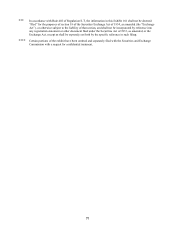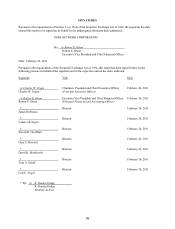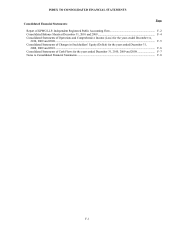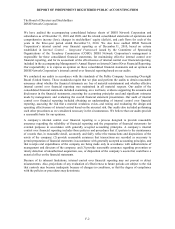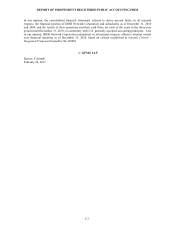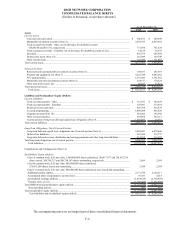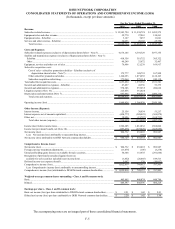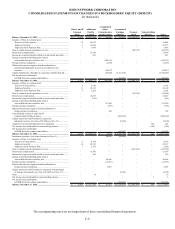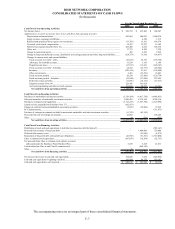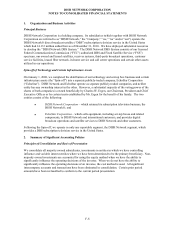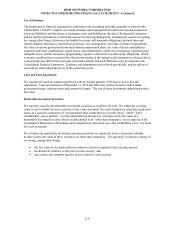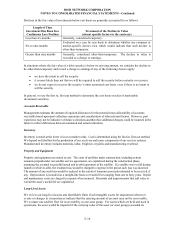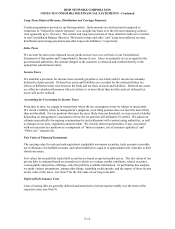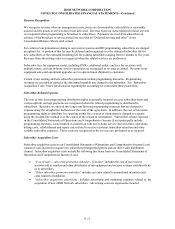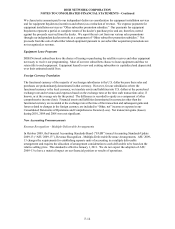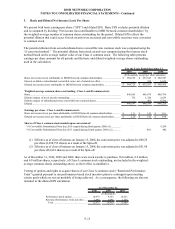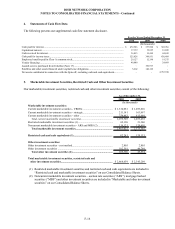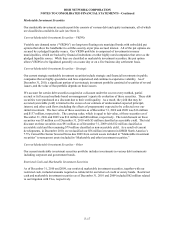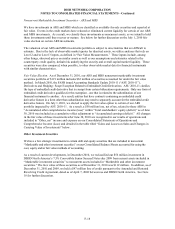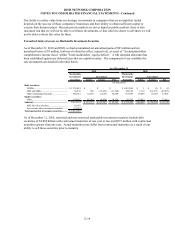Dish Network 2010 Annual Report Download - page 94
Download and view the complete annual report
Please find page 94 of the 2010 Dish Network annual report below. You can navigate through the pages in the report by either clicking on the pages listed below, or by using the keyword search tool below to find specific information within the annual report.DISH NETWORK CORPORATION
NOTES TO CONSOLIDATED FINANCIAL STATEMENTS - Continued
F-9
Use of Estimates
The preparation of financial statements in conformity with accounting principles generally accepted in the
United States (“GAAP”) requires us to make estimates and assumptions that affect the reported amounts of
assets and liabilities and disclosure of contingent assets and liabilities at the date of the financial statements
and the reported amounts of revenue and expense for each reporting period. Estimates are used in accounting
for, among other things, allowances for doubtful accounts, self-insurance obligations, deferred taxes and
related valuation allowances, uncertain tax positions, loss contingencies, fair value of financial instruments,
fair value of options granted under our stock-based compensation plans, fair value of assets and liabilities
acquired in business combinations, capital leases, asset impairments, useful lives of property, equipment and
intangible assets, retailer incentives, programming expenses, subscriber lives and royalty obligations. Weak
economic conditions have increased the inherent uncertainty in the estimates and assumptions indicated above.
Actual results may differ from previously estimated amounts, and such differences may be material to the
Consolidated Financial Statements. Estimates and assumptions are reviewed periodically, and the effects of
revisions are reflected prospectively in the period they occur.
Cash and Cash Equivalents
We consider all liquid investments purchased with an original maturity of 90 days or less to be cash
equivalents. Cash equivalents as of December 31, 2010 and 2009 may consist of money market funds,
government bonds, corporate notes and commercial paper. The cost of these investments approximates their
fair value.
Marketable Investment Securities
We currently classify all marketable investment securities as available-for-sale. We adjust the carrying
value of our available-for-sale securities to fair value and report the related temporary unrealized gains and
losses as a separate component of “Accumulated other comprehensive income (loss)” within “Total
stockholders’ equity (deficit),” net of related deferred income tax. Declines in the fair value of a
marketable investment security which are determined to be “other-than-temporary” are recognized in the
Consolidated Statements of Operations and Comprehensive Income (Loss), thus establishing a new cost basis
for such investment.
We evaluate our marketable investment securities portfolio on a quarterly basis to determine whether
declines in the fair value of these securities are other-than-temporary. This quarterly evaluation consists of
reviewing, among other things:
• the fair value of our marketable investment securities compared to the carrying amount,
• the historical volatility of the price of each security, and
• any market and company specific factors related to each security.


